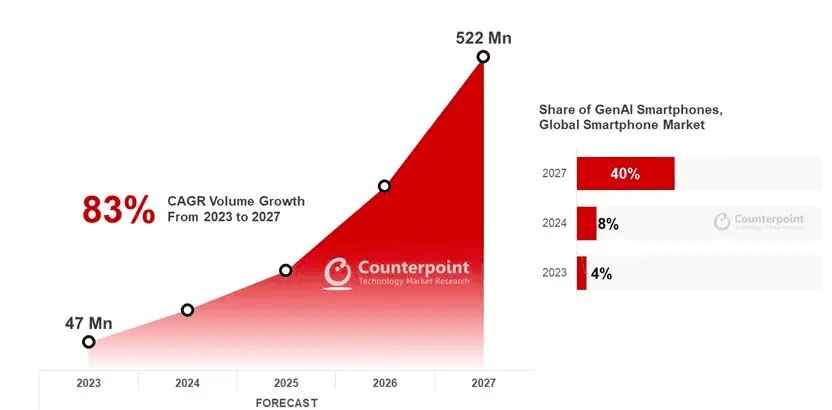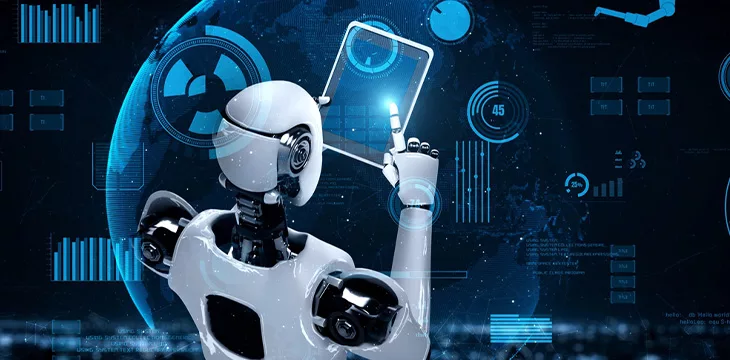|
Getting your Trinity Audio player ready...
|
Recently, I wrote an article about a few trends I expect to see in the artificial intelligence industry in 2024. What I didn’t predict, and what we are currently experiencing, is the advent of “AI devices,” such as AI TVs, AI smartphones, AI PCs, and more.
The AI chip era
What we are really seeing is the evolution of smart technology. Traditionally, smart devices had internet connectivity and modern processors, but now, manufacturers seem to be making the leap to AI Chips. These AI Chips are not only about processing power. They specialize in executing AI functions for devices. For instance, LG has announced a new line of OLED TVs powered by the Alpha 11 AI processor. Thanks to this AI processor, LG says there will be a 70% leap in graphic performance during gaming scenarios and a 30% increase in processing speed compared to last year’s models. The Alpha 11 AI processor also upscales objects and background details, reduces blur, and finely tunes colors to express the emotional narratives intended by filmmakers.
LG isn’t alone in equipping its devices with AI chips. Samsung recently announced that it will unveil its AI-enabled mobile device, the Galaxy S24. We will likely see more mobile phone manufacturers follow this trend, releasing new models with AI capabilities as their unique selling point rather than the upgrades they have been selling consumers on for the past several years like camera enhancements.
The AI device wave has also made its way into the world of mobile computing, with
Microsoft (NASDAQ: MSFT) announcing plans to launch its inaugural series of AI PCs in the near future. The Microsoft AI PC will also have an AI chip at its core, allowing it to perform tasks such as natural language processing, image recognition, and real-time decision-making locally rather than outsourcing it to the cloud.
Decoding the AI buzz
Thanks to the success of various AI products and services over the last two years, we are at a point in the AI era where we are seeing a surge in companies leveraging “AI” as a buzzword to amplify their market presence; even the three AI devices mentioned in this article fall victim of this. Two out of three of the devices (the AI PC and AI phone) would be capable of handling their proposed AI functionalities due to the evolution of computer chips and the subsequent strength they give each device—regardless of whether they were branded as AI devices or having AI chips.

I expect this trend to continue for a while; according to Counterpoint research, by the end of 2027, it’s anticipated that there will be over one billion smartphones equipped with generative AI. While many devices will have AI capabilities, consumers need to be conscious of whether the AI component of these devices is crucial in delivering a unique value proposition or if the AI is merely a marketing tactic employed by the manufacturer to capitalize on the AI wave.
In order for artificial intelligence (AI) to work right within the law and thrive in the face of growing challenges, it needs to integrate an enterprise blockchain system that ensures data input quality and ownership—allowing it to keep data safe while also guaranteeing the immutability of data. Check out CoinGeek’s coverage on this emerging tech to learn more why Enterprise blockchain will be the backbone of AI.
Watch: AI and blockchain

 08-02-2025
08-02-2025 





